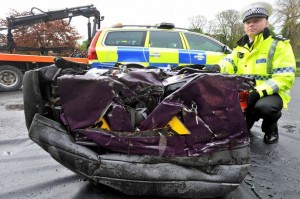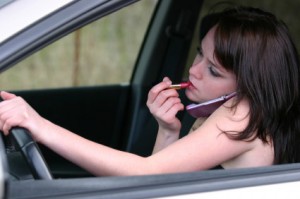Most Common Motoring Offences
Solicitors who deal with multiple areas of criminal law won’t always know the perfect legal arguments that can be used to defend your case if you have been accused of any of the driving offences below;
Failing to name the driver
If you commit a road traffic offence, a section 172 information request will be sent to you.
You will be given 6 points on your licence if you do not return the completed request.
There are two statutory defences, S172(4) and S172(7)(b) Road Traffic Act 1988.
Reasonable diligence must be demonstrated in order to show that you have tried to identify the driver at the time of the alleged offence. Or, demonstrate that you didn’t receive the request to identify the driver.
Insurance Related Driving Offences
Irrespective of your circumstances, if you are stopped while driving without suitable insurance, you are assumed to be guilty.
The penalty for this road traffic offence is six to eight penalty points on your licence.
Frequently insurance companies will cancel motor cover if they haven’t received a scheduled payment, leaving the driver driving illegally.
Only if you can demonstrate to the Court that you genuinely and honestly believed that you had insurance in place can you then use the Special Reasons Argument.
Speed Limit Offences
As well as a possible discretionary driving ban, the penalty for speeding is three – six points on your licence, a fine and incurred court costs.
Professional expert testimony is mandatory following recent motoring case law if you want to be able to defend your alleged speeding offence.
Drinking and Driving
35mg is the maximum permitted alcohol breath reading for drink driving in the UK. A licence ban of 1 year is the minimum penalty for a drinking and driving conviction.
There are three valid defences for drink drive allegations. You can prove that you were not the driver, you can demonstrate that you were not in a public place, or you can prove that you didn’t drink any alcohol until after you had driven, rather than before.
If you consumed alcohol without knowing then you may also have a possible defence, or if you drove only a very short distance, or it was an emergency situation.Another way to avoid a drink driving licence ban if you are able to show that you swallowed alcohol unwittingly, were involved in a lifethreatening emergency situation or only drove for a very short distance.
Drunk in charge of a vehicle
To gain a conviction, it is necessary for the prosecution to demonstrate that you were over the legal drink drive limit and that you were in charge of the car at the time of the offence.
Demonstrating to the court that you had no intention of driving until you were below the legal drinking and driving limit is grounds for a viable defence of this allegation.
If you are found guilty then you face either ten penalty points on your licence or a discretionary driving licence ban.
Mobile Phone Offences
A mobile phone road traffic offence is deemed to have been committed if you are holding & using the mobile phone while driving.
Use is often a grey area and Courts view it differently.
Even if you are stationary at traffic lights or in a hold up, it is still an offence as you are still considered to be driving.
Without Due Care Offences
To prove the motoring offence of driving without due care and attention, the prosecution will have to prove in court that your driving standard fell below the level expected from a careful & competent driver.
Car park scrapes and knocks as well as motorway undertaking are all examples of without due care.
As an alternative to prosecution, and depending on your circumstances, the police may well offer you a Driving Improvement Course.
Fail to Stop
S 170 Road Traffic Act states that anyone involved in an accident is under a duty to stop and provide your details if damage has been caused to either; a vehicle, person or property.
Where it’s not possible to exchange details at the time, you must report the matter at a police station as soon as you are reasonably able to do so and at least, within twenty four hours.
If you go to court and are found guilty of failing to report or failing to stop then you face five to ten penalty points or a driving ban at the Magistrates discretion.
One defence is that you didn’t know that you’d had an accident and caused damage. If you can show that it would be reasonable not to know then you have a possible defence against the allegations.
The maximum punishment for failing to report and failing to stop is a prison sentence, but community service is also a possibility.
Dangerous Driving Related Offences
To be convicted for dangerous driving, the level of your driving must fall far below what is required, but in addition it should be obvious to a competent driver that the driving is dangerous.
The courts take dangerous driving seriously, meaning that it carries serious penalties; a minimum twelve month licence disqualification, which includes a full re-test in order to regain your licence, as well as a potential custodial sentence for more serious cases and a fine of up to £5000.
No Driving Licence Motoring Offences
The offence of driving without a valid licence often causes confusion.
This offence depends on the conditions of your driving licence, for example, if you have never passed a driving test and are not displaying L plates then the offence is endorsable.
If for example you have been instructed by the Driver and Vehicle Licencing Agency to return your licence & they elect to suspend your entitlement to drive, it is non-endorsable as an offence.
No licence offences are often linked to no having motor insurance offences, where it is often suggested that having no licence means that your insurance is invalid. This is not true. Ask a motoring solicitor about how you can defend yourself against being wrongly convicted of this ‘no licence’ offence.
This offence is frequently misunderstood by the police and Magistrates Courts, who often aren’t certain whether the offence carries penalty points or not.







